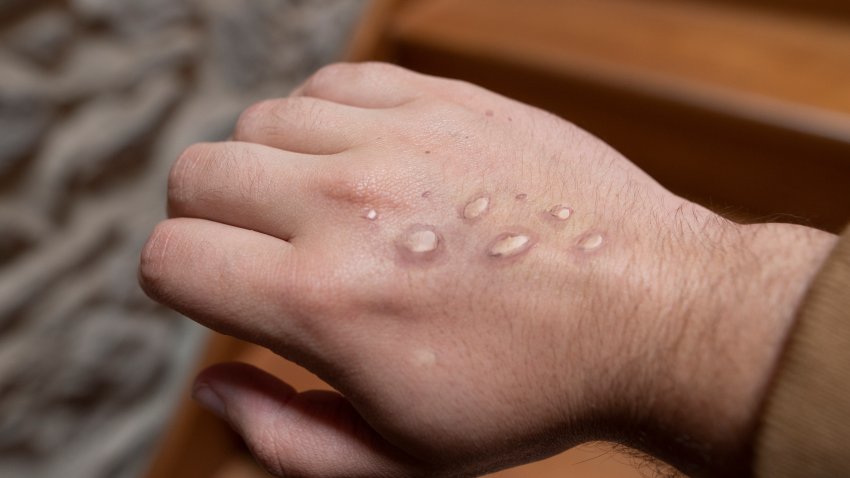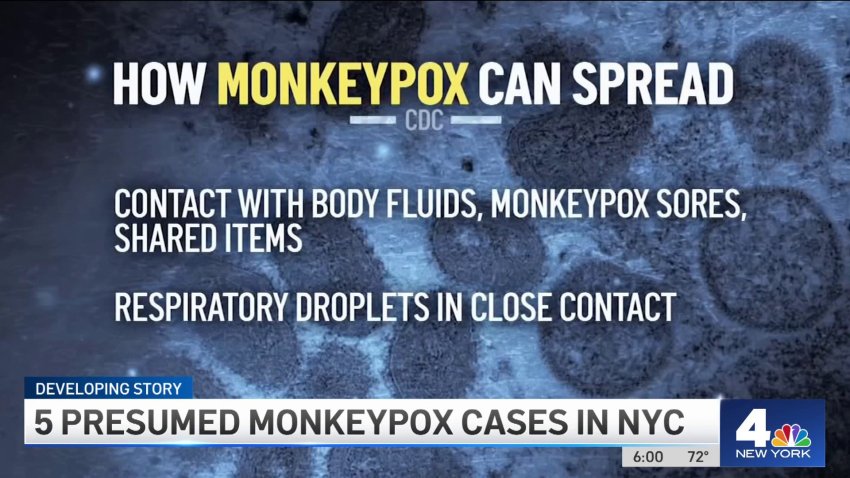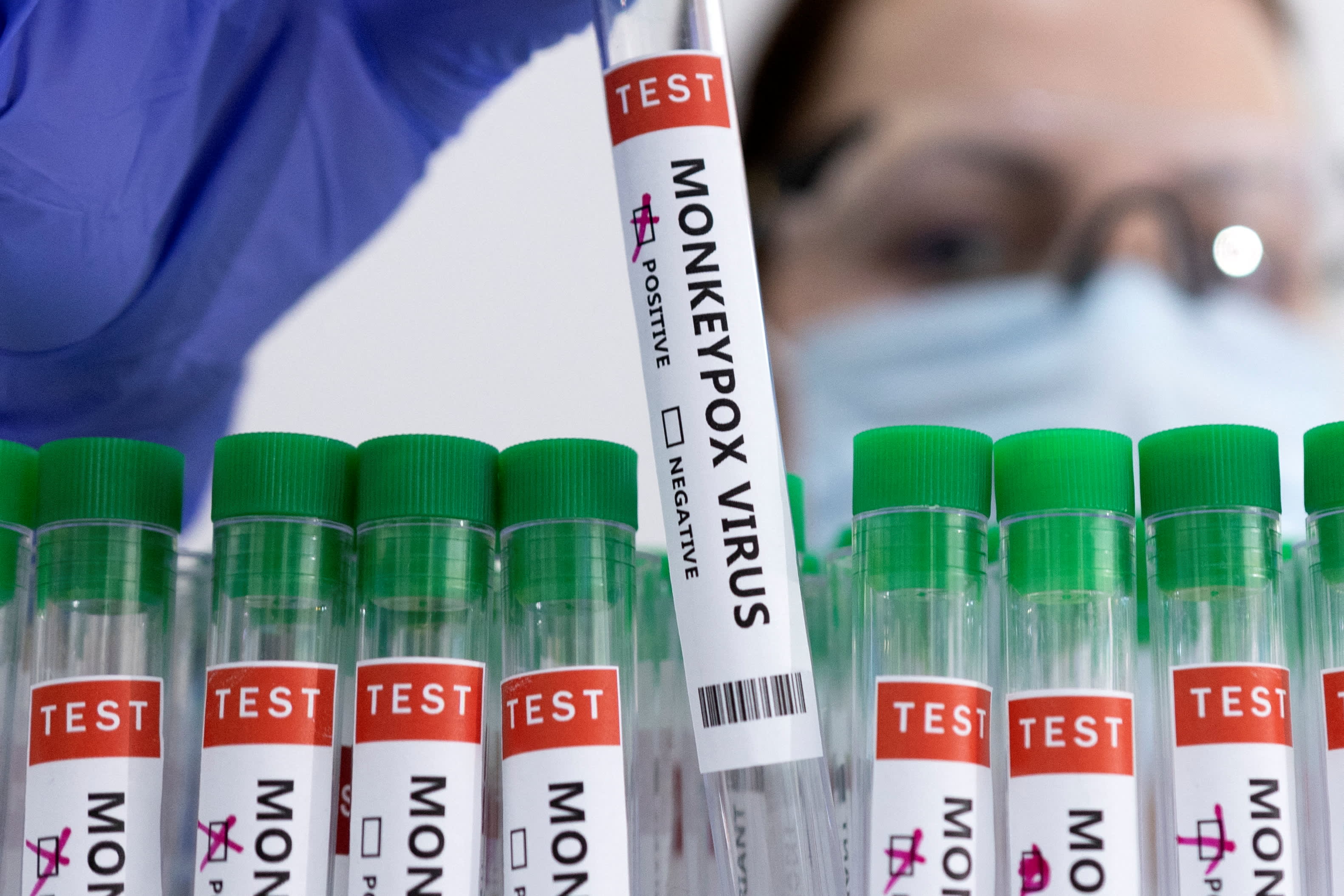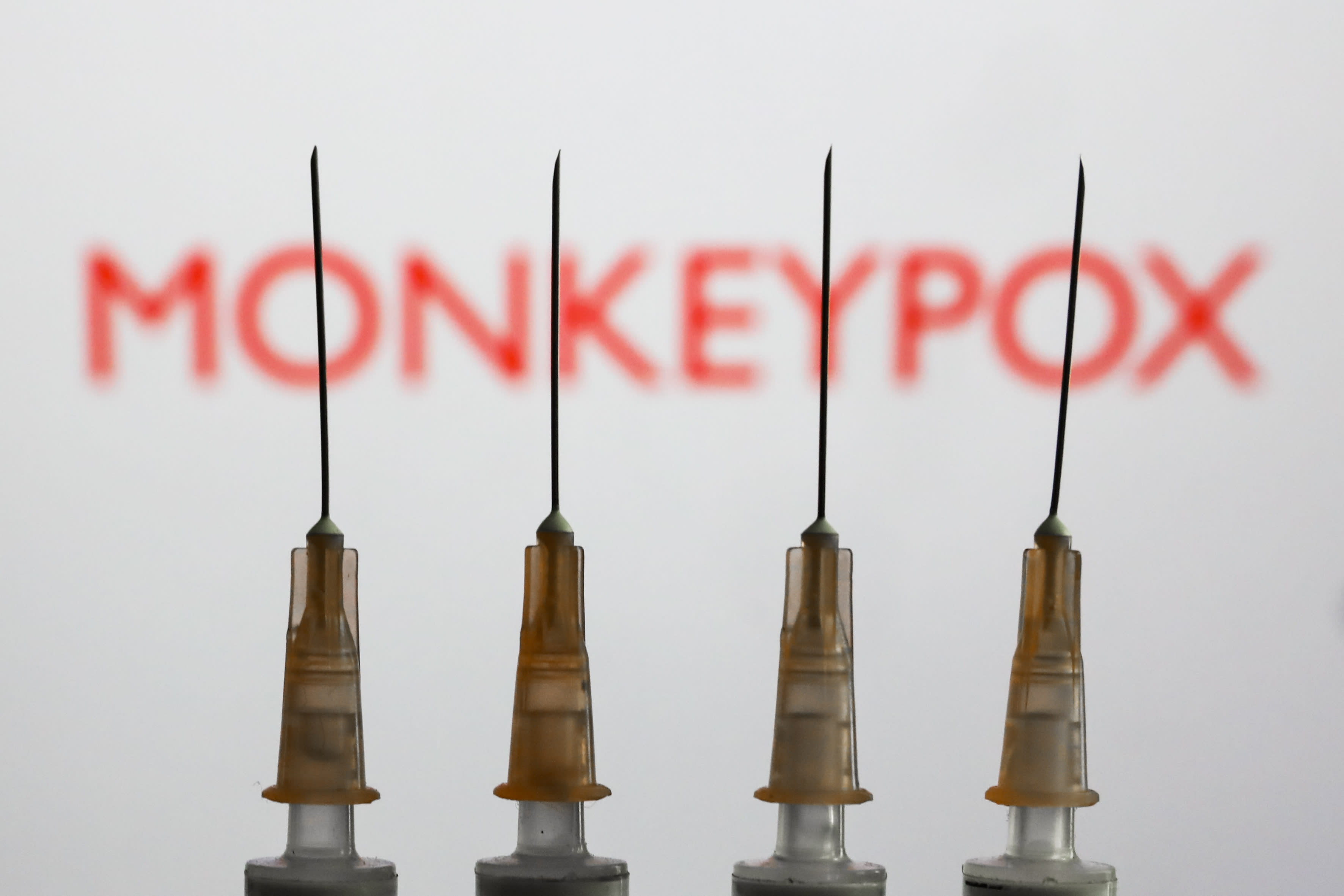We already have vaccines and treatments approved for monkeypox
A fifth person has tested positive for what is presumed to be monkeypox in New York City, city health officials said late Thursday night, as the government urged doctors to test more aggressive for the virus.
The new NYC case makes three in less than 36 hours for a previously rare disease that is now spreading so quickly, top global health officials say they don't know if it's "too late to contain."
Watch NBC 4 free wherever you are
In a sign that the situation may be more advanced than first understood, the CDC said Friday there appear two be two separate and distinct outbreaks going on outside of Africa, with some virus samples seen in the United States being distinct from the samples seen in the European outbreak.

Get Tri-state area news delivered to your inbox with NBC New York's News Headlines newsletter.
CDC Monkeypox Vaccine Update
Agency officials, in a briefing with reporters, stressed that the public health risk remains low, vaccine stockpiles are ample for now, and that it was "too early to know" if the virus was going to become endemic in the United States.
As of Thursday afternoon, the CDC said there were 21 confirmed cases nationwide from the recent outbreak. That's more than double in a week.
The vast majority of U.S. cases are in men who have sex with men, and patients have each reported international travel. So far, only one confirmed case has an unknown origin. The CDC said that all patients nationwide are recovering, or have already recovered.
The agency is asking doctors to test more aggressively for monkeypox, even if they think a patient is presenting with symptoms of another sexually transmitted illness.

"They should test for monkeypox even if they think they might have a positive test for a much more common STI," Jennifer McQuiston, deputy director of the CDC's Division of High Consequence Pathogens and Pathology, said on a call with reporters.
Of the first 17 confirmed cases, all 17 had a rash and most had fatigue or chills. A majority had rashes on their arm or chest, though many other spots were affected as well.
Globally, the World Health Organization has identified infections from the current outbreak in at least 12 countries.
The WHO says so far, there is no link between this outbreak and travel to countries where the virus is already endemic.
"We don't really know whether it's too late to contain. What WHO and all member states are trying to do is prevent onward spread," Dr. Rosamund Lewis, the WHO's monkeypox technical lead, said during a news conference in Geneva on Wednesday.
What Is Monkeypox?
Monkeypox was first discovered in 1958, when outbreaks occurred in colonies of monkeys kept for research -- resulting in its name. (What you need to know about monkeypox.)
The first case in a human was reported in 1970 in the Democratic Republic of the Congo, which still has the majority of infections. Other African countries where it has been found: Cameroon, Central African Republic, Cote d’Ivoire, Democratic Republic of the Congo, Gabon, Liberia, Nigeria, Republic of the Congo and Sierra Leone.
Human symptoms of monkeypox are similar to but milder than the symptoms of smallpox, the CDC says. It presents itself as a flu-like illness accompanied by lymph-node swelling and rash on the face and body.
Monkeypox starts off with fever, headache, muscle aches, and exhaustion. Monkeypox also causes lymph nodes to swell, something that smallpox does not. The incubation period is usually 7−14 days but can range from 5−21 days.
The CDC is urging healthcare providers in the U.S. to be alert for patients who have rashes consistent with monkeypox, regardless of whether they have traveled or have specific risks for monkeypox. See more information from the travel notice here.



